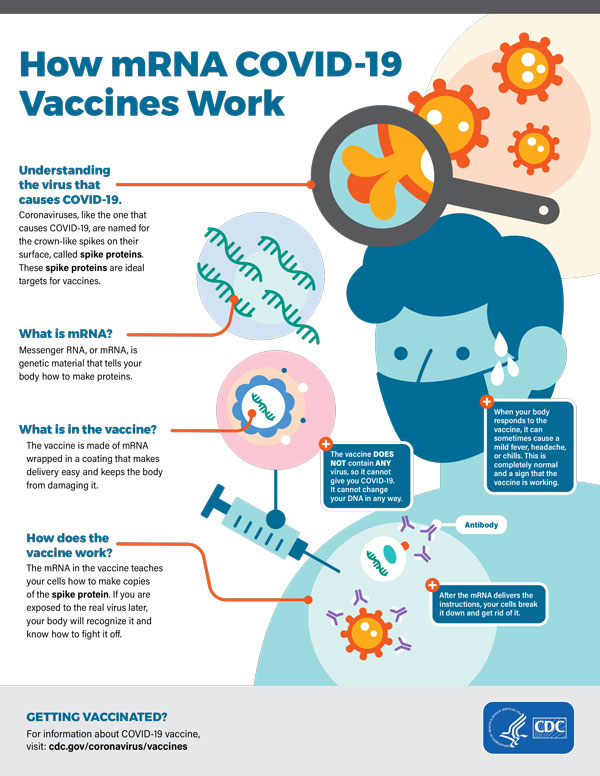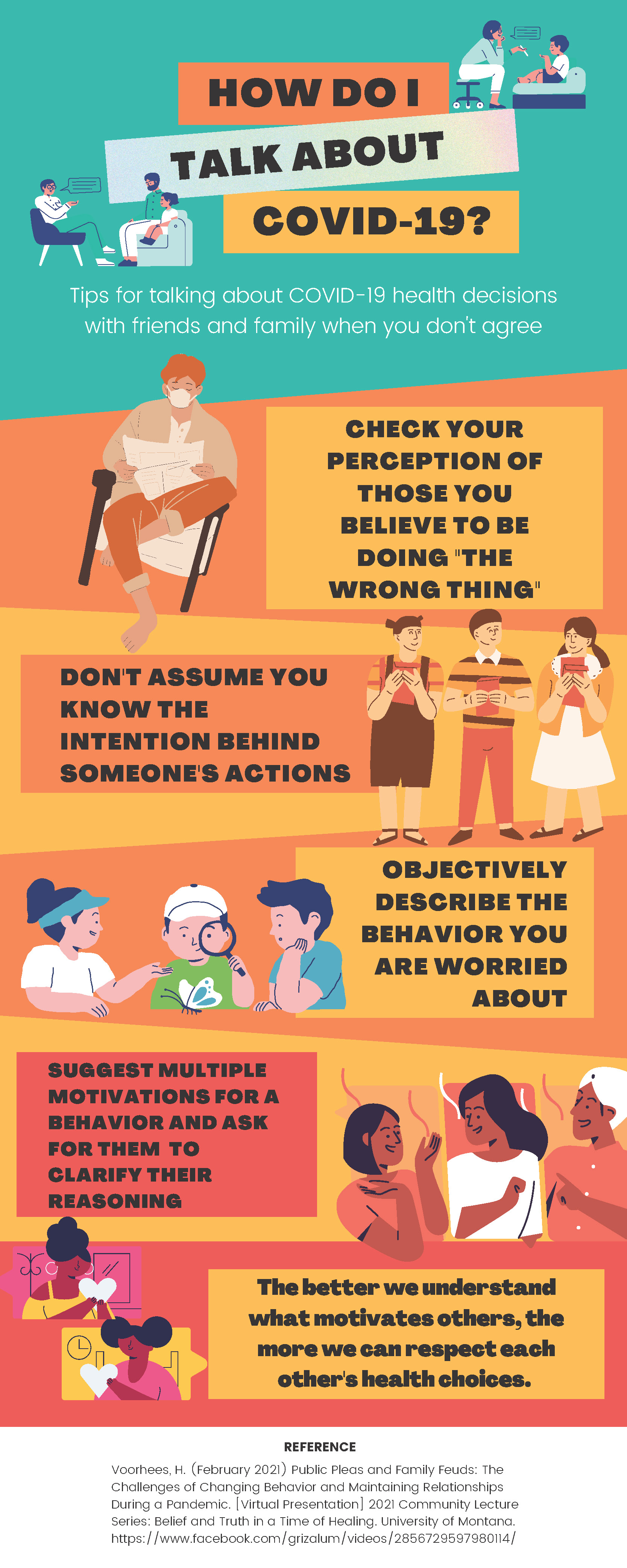Resources for Sharing
If you are interested in sharing research-based information found on this webpage, consider using some of these messages to share with your followers.
Consider sharing social media, news articles, or a radio spot to help spread the word on what this research means for our friends, family, and neighbors in Montana!
Right-click on any image to download and save it to use on your social feed and use the provided text and links to accompany the image. These images are sized for stories on Facebook and/or Instagram.
Infographic-Vaccine Messaging/Conversations
Unfortunately, the topic of COVID-19 vaccines has become increasingly divided and emotionally charged. MSU nursing student Lindsay McHugh created a guideline for successful communication about the COVID-19 vaccine with friends and family.
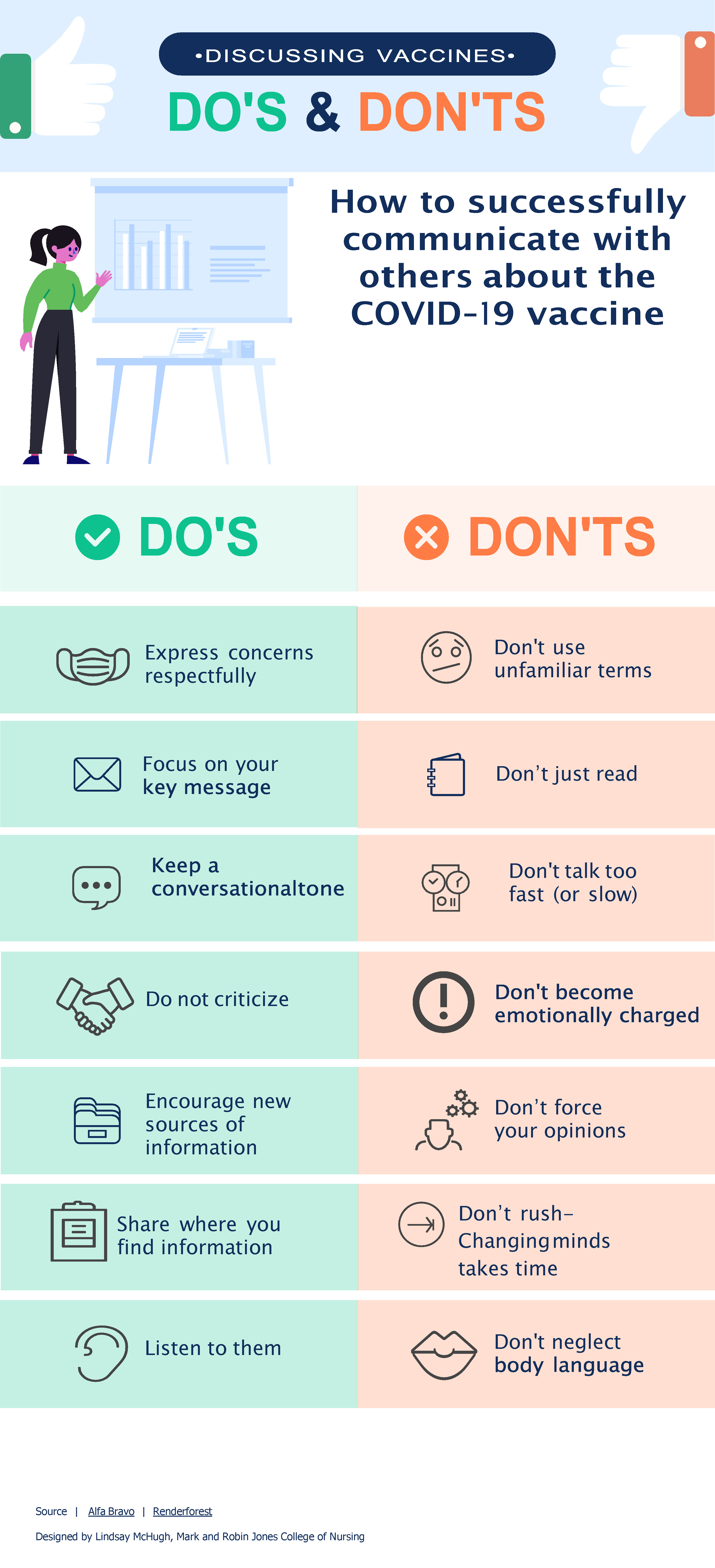
Infographic-COVID-19 Myths
There have been countless falsities circulating about the components of the COVID-19 mRNA vaccine. Thanks to MSU nursing student Kaeli Pyles, these COVID-19 mRNA vaccine myths have been debunked.
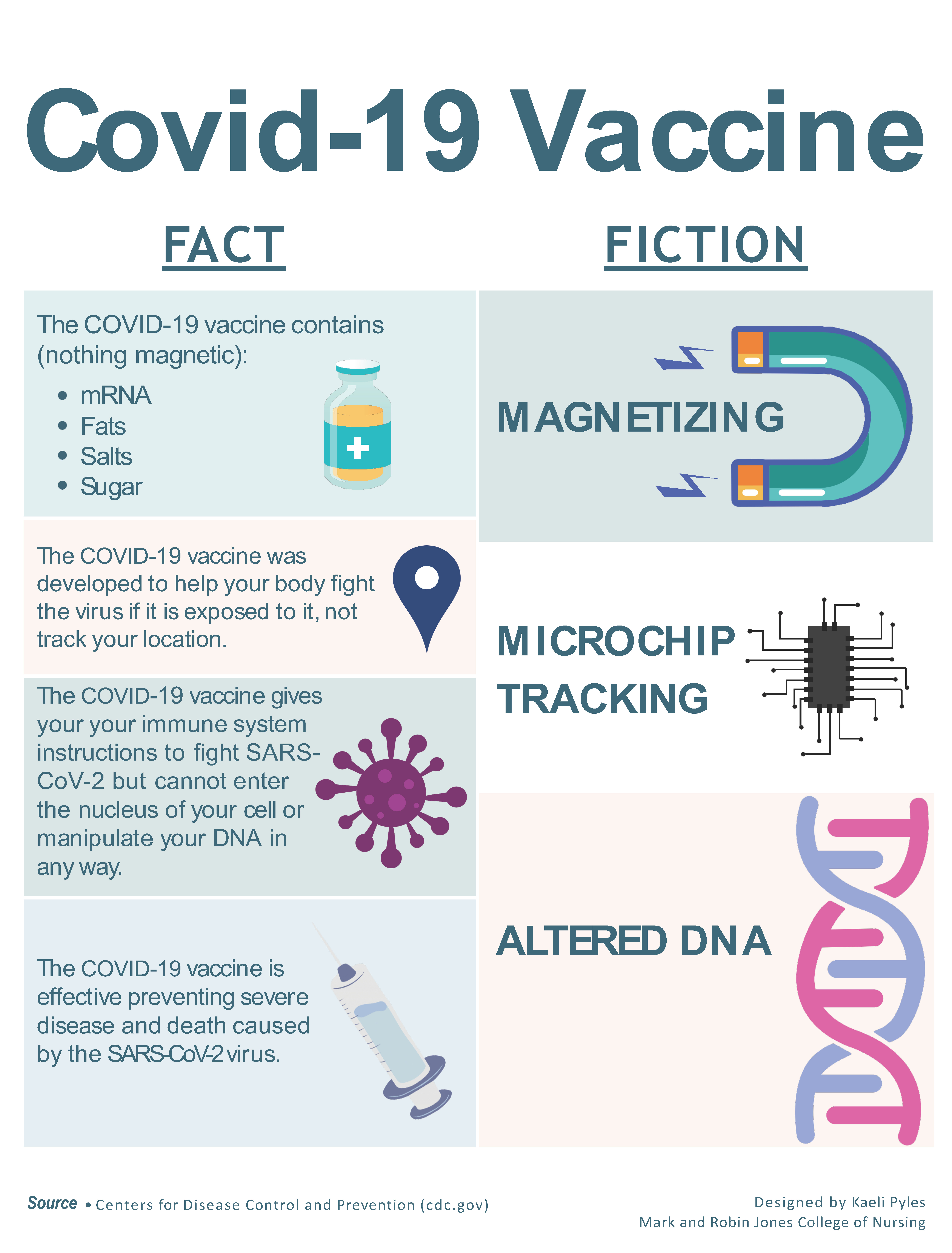
Myths and facts about COVID-19 and the vaccines by MSU Nursing student Haley Olson.
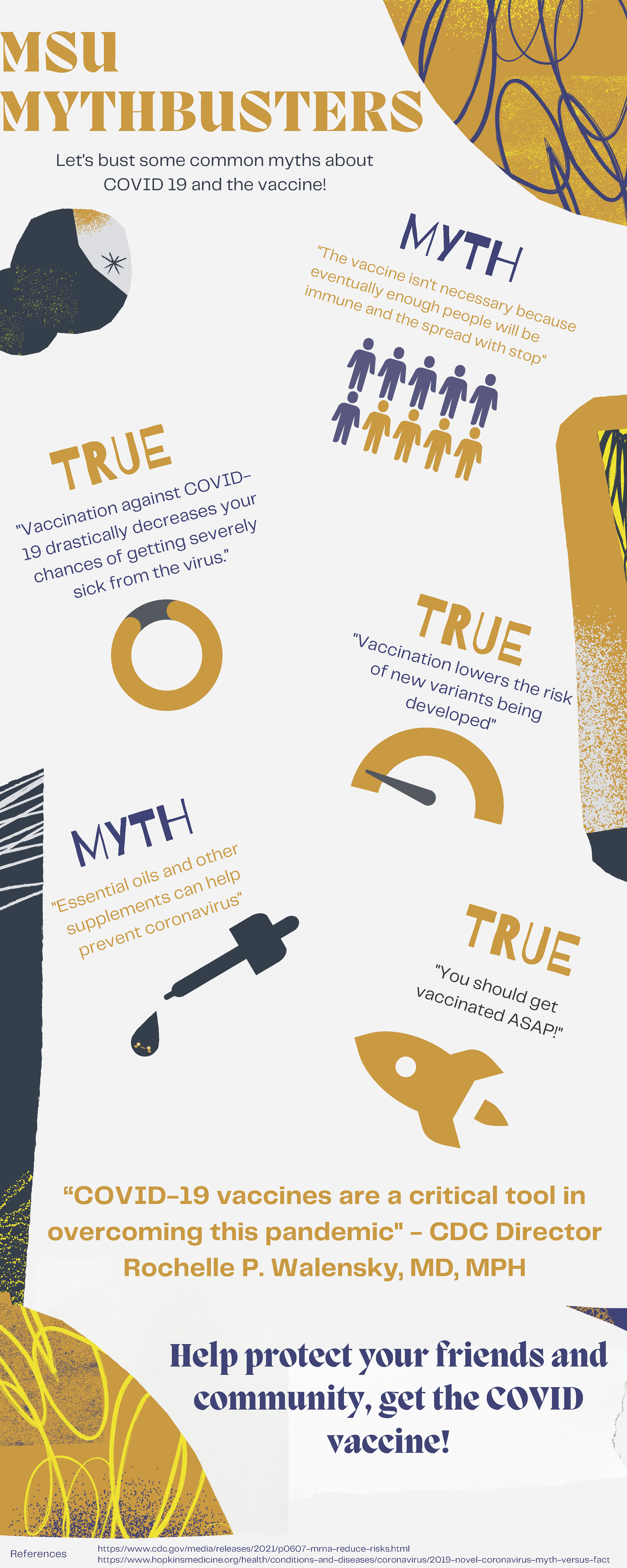
The following infographic by MSU nursing student Hannah McConnell discloses the facts about causes of virus variants.
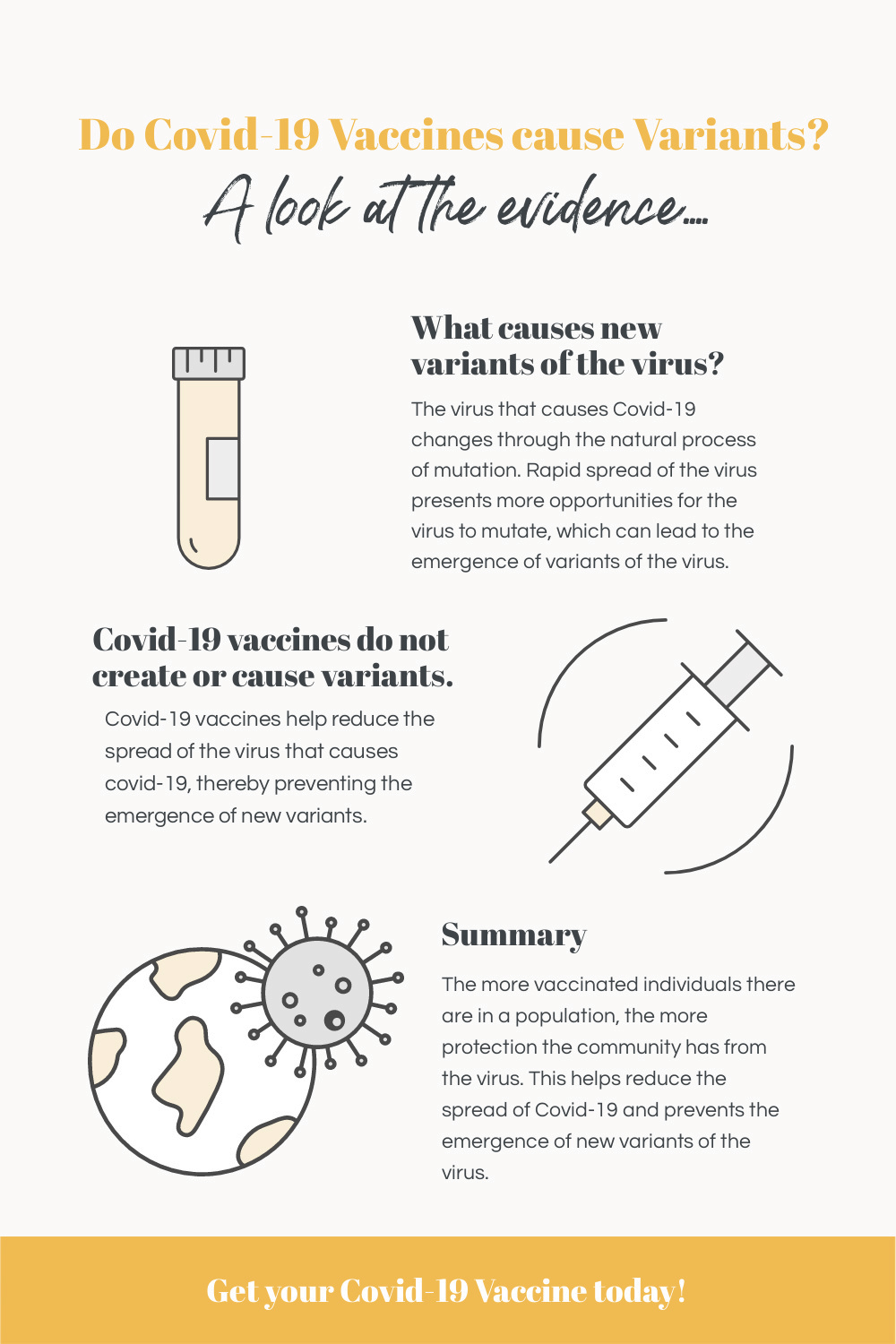
Infographic-Vaccination Hesitation
Vaccination against SARS-CoV-2 (the virus that causes COVID-19) is the key component to combating the current global health pandemic. If you are uncertain about the benefits of a COVID-19 vaccine, check out this infographic designed by an MSU nursing student outlining the importance of getting your vaccine!
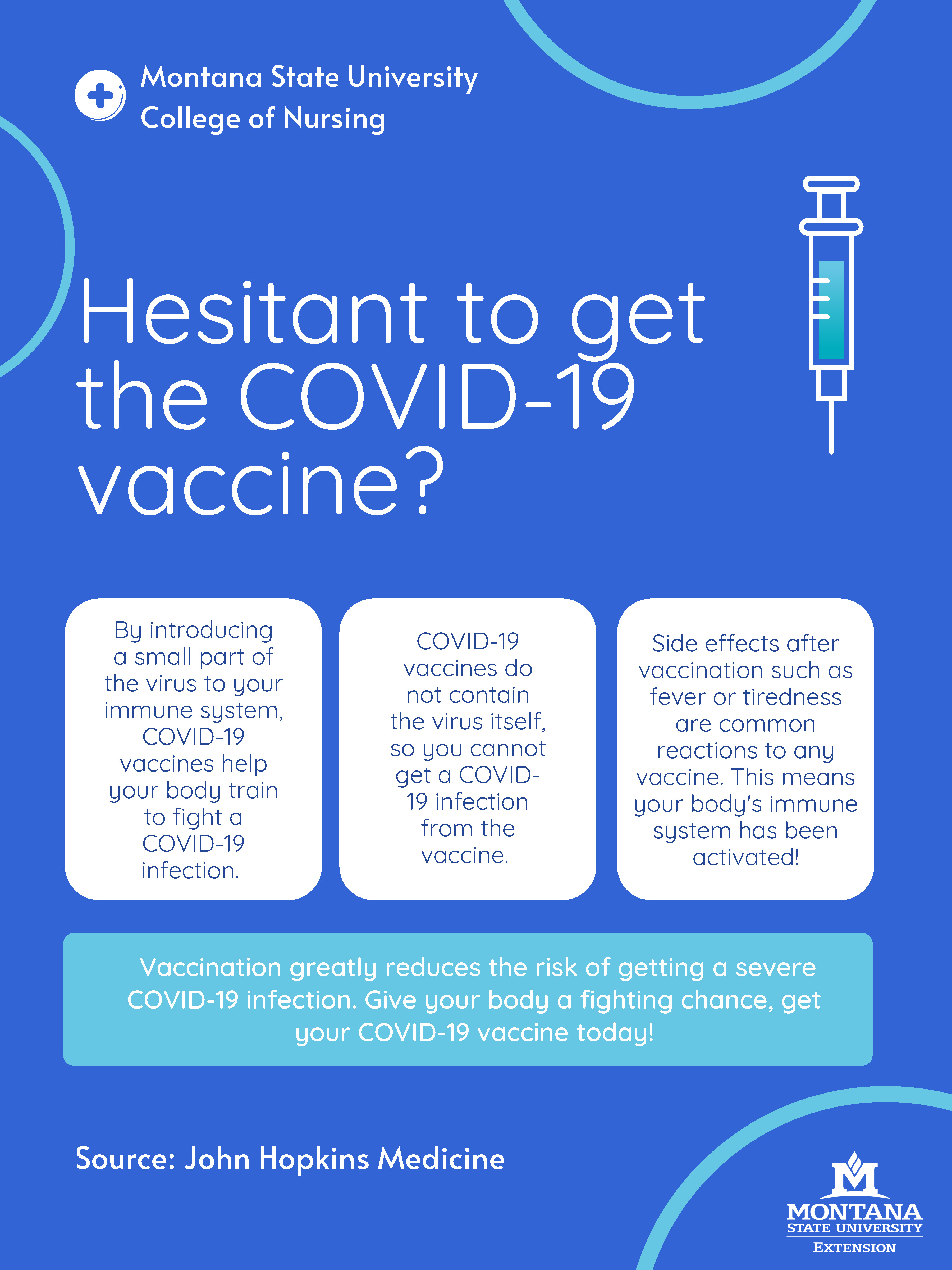
This infographic by MSU Nursing Student Chelsey Roper debunks some common reasons people may give while being hesitant to get the vaccine.
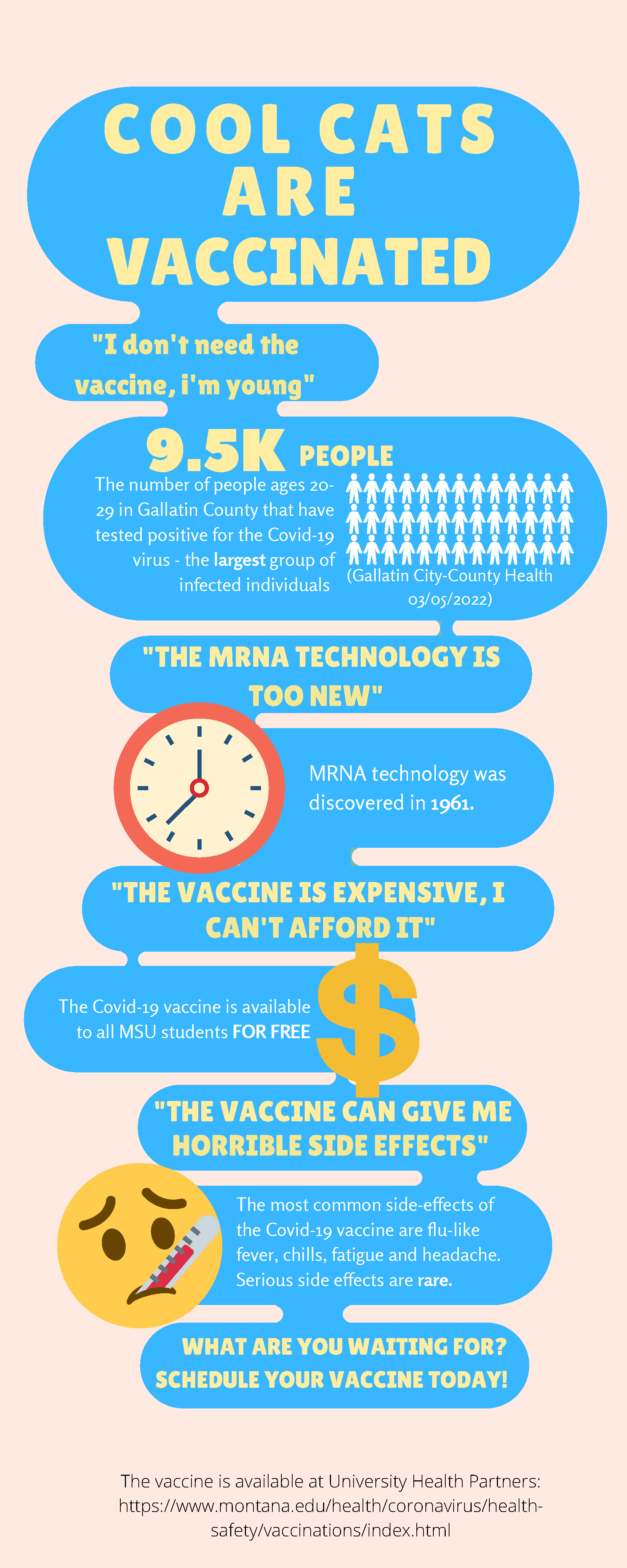
Explaining Scientific Terms to Understand COVID-19
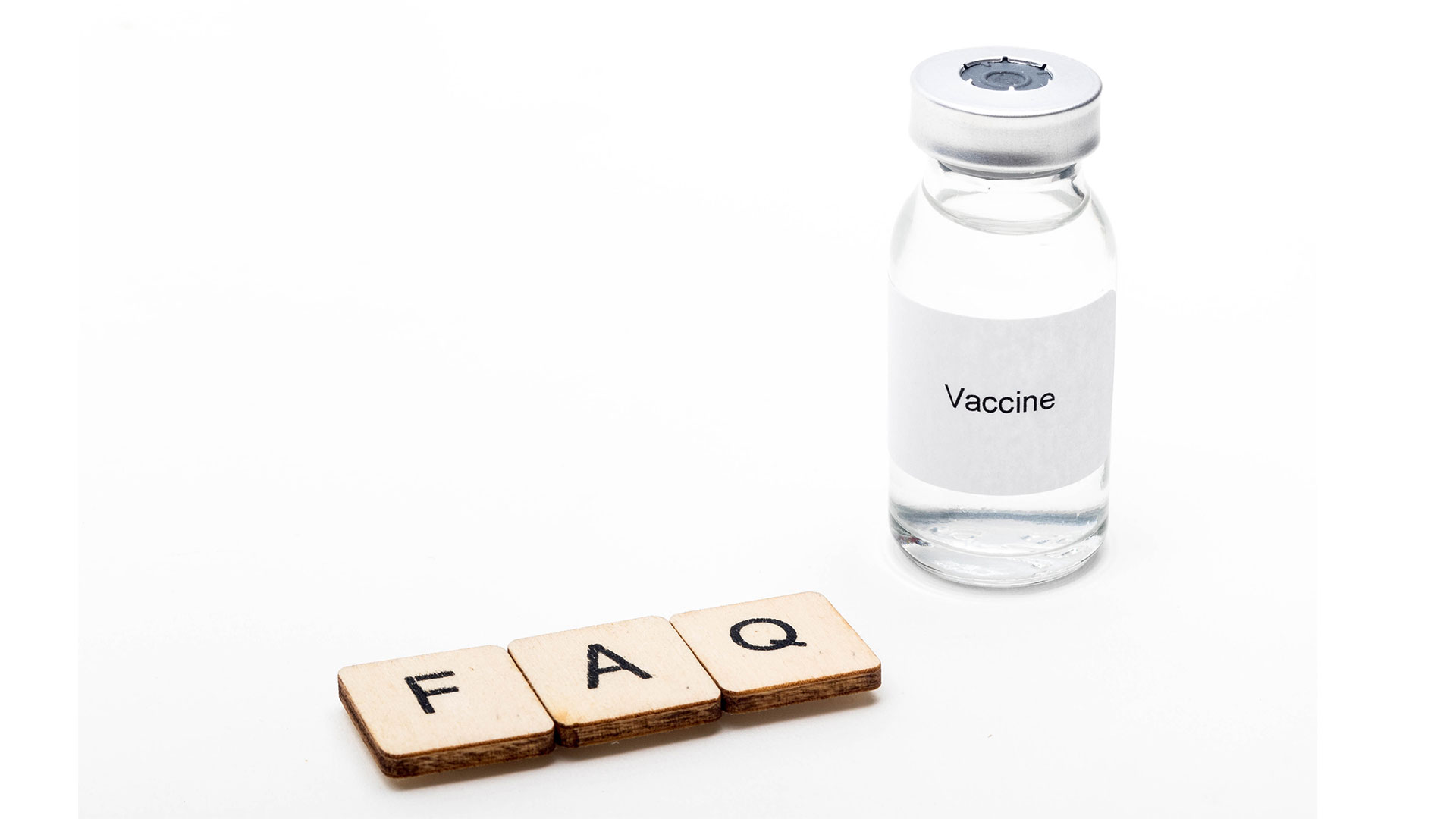
Many scientific terms are being shared in the news and via social media with very little explanation of what they really mean. Our experts provide a glossary of scientific terms to help you better understand data, research and news regarding vaccines and the science behind them.
Wondering how to talk to loved ones to encourage vaccination?
Check out this talk by University of Montana Health Communications Expert, Heather Voorhees, PhD where she shares some history of public health message and tools to support change in your own conversations.
Tips for talking about COVID-19 health decisions with friends and family when you don't agree
- Check your perception of those you believe to be doing "the wrong thing."
- Don't assume you know the intentions behind someone's actions.
- Objectively describe the behavior you are worried about.
- Suggest multiple motivations for a behavior and ask for them to clarify their reasoning.
- The better we understand what motivates others, the more we can respect each other's health choices.
COVID-19 Vaccines have been approved for use with kids 5-11!
Find research-based answers to your questions on our Latest in the Research page.
Would You Like to Share Information on How the COVID-19 Vaccines work?
This infographic from the CDC explains the process. If you need an explanation of the scientific terms in the infographic please visit our FAQ: COVID-19 Edition page.
Visit the CDC website for more information.
